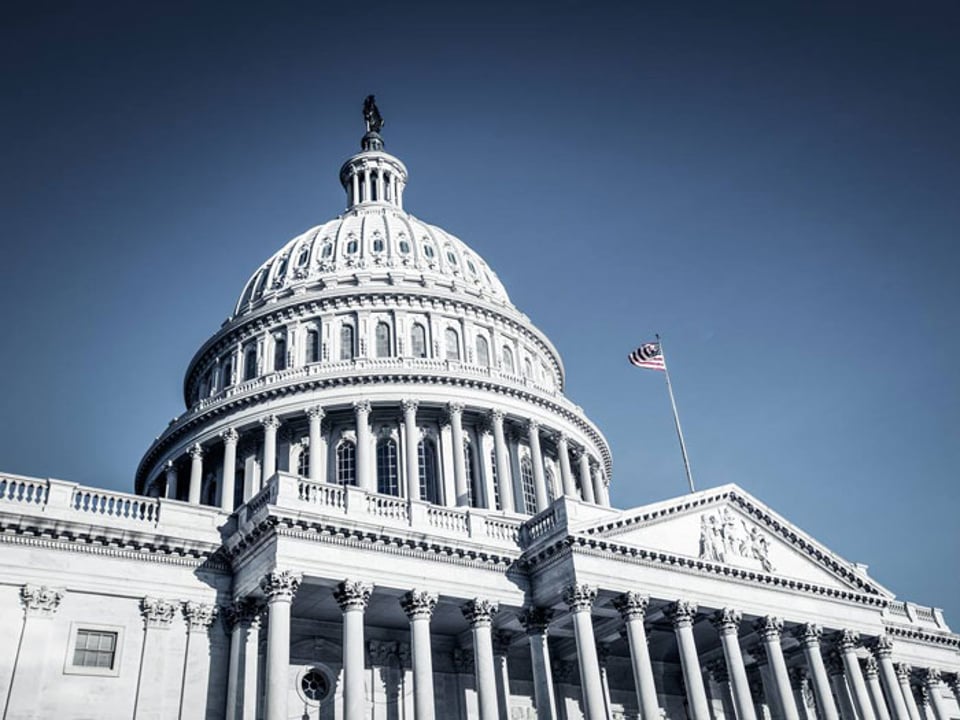Senate approves Family First Coronavirus Act
The Senate has approved the Family First Coronavirus Response Act, in response to the coronavirus crisis.
The legislation provides guaranteed free coronavirus testing, establishes paid leave for all employees, enhances unemployment insurance, expands food security initiatives and increases federal Medicaid funding.
Tax credits for employers are also included in the package.
The bill was approved on March 18 by a vote of 90-8 in the Senate and was initially passed by the House of Representatives on March 14 by a vote of 363 to 40.
Under the terms of the act, employers with fewer than 500 employees are required to provide full-time employees two weeks (80 hours) of paid sick leave (pro-rated for part-time employees), paid at the employee’s regular rate, limited to $511 per day for employees who are unable to work or work remotely due to coronavirus related illness and circumstances.
Additionally, employers with fewer than 500 employees must provide full-time employees two weeks (80 hours) of paid sick leave (pro-rated for part-time employees), paid at two-thirds the employee’s regular rate, limited to $200 per day, due to the coronavirus.
Here are more details about the Family First Coronavirus Response Act, as provided by the National Lumber and Building Material Dealers Association (NLBMDA).
The Act also expands the existing Family and Medical Leave Act (FMLA) requirements until Dec. 31, 2020, which can apply to all employers with fewer than 500 employees, and applies to employees who have been employed at least 30 calendar days.
Employees are immediately eligible for the benefits.
Employers can claim a refundable tax credit every quarter equal to 100% of the qualified sick leave wages paid by the employer. The tax credit is applied against employer Social Security taxes, but employers are reimbursed if their expenses for qualified sick leave exceed the taxes they would owe.
While the Family First Coronavirus Response Act is the first step toward combatting the socioeconomic impacts of the coronavirus, the Senate continues to work on President Donald Trump’s $1 trillion stimulus package, including small business support, tax credits or a tax cut for individuals, and $50 billion in assistance to the airline industry.
The legislation provides guaranteed free coronavirus testing, establishes paid leave for all employees, enhances unemployment insurance, expands food security initiatives and increases federal Medicaid funding.
Tax credits for employers are also included in the package.
The bill was approved on March 18 by a vote of 90-8 in the Senate and was initially passed by the House of Representatives on March 14 by a vote of 363 to 40.
Under the terms of the act, employers with fewer than 500 employees are required to provide full-time employees two weeks (80 hours) of paid sick leave (pro-rated for part-time employees), paid at the employee’s regular rate, limited to $511 per day for employees who are unable to work or work remotely due to coronavirus related illness and circumstances.
Additionally, employers with fewer than 500 employees must provide full-time employees two weeks (80 hours) of paid sick leave (pro-rated for part-time employees), paid at two-thirds the employee’s regular rate, limited to $200 per day, due to the coronavirus.
Here are more details about the Family First Coronavirus Response Act, as provided by the National Lumber and Building Material Dealers Association (NLBMDA).
The Act also expands the existing Family and Medical Leave Act (FMLA) requirements until Dec. 31, 2020, which can apply to all employers with fewer than 500 employees, and applies to employees who have been employed at least 30 calendar days.
Employees are immediately eligible for the benefits.
Employers can claim a refundable tax credit every quarter equal to 100% of the qualified sick leave wages paid by the employer. The tax credit is applied against employer Social Security taxes, but employers are reimbursed if their expenses for qualified sick leave exceed the taxes they would owe.
While the Family First Coronavirus Response Act is the first step toward combatting the socioeconomic impacts of the coronavirus, the Senate continues to work on President Donald Trump’s $1 trillion stimulus package, including small business support, tax credits or a tax cut for individuals, and $50 billion in assistance to the airline industry.

